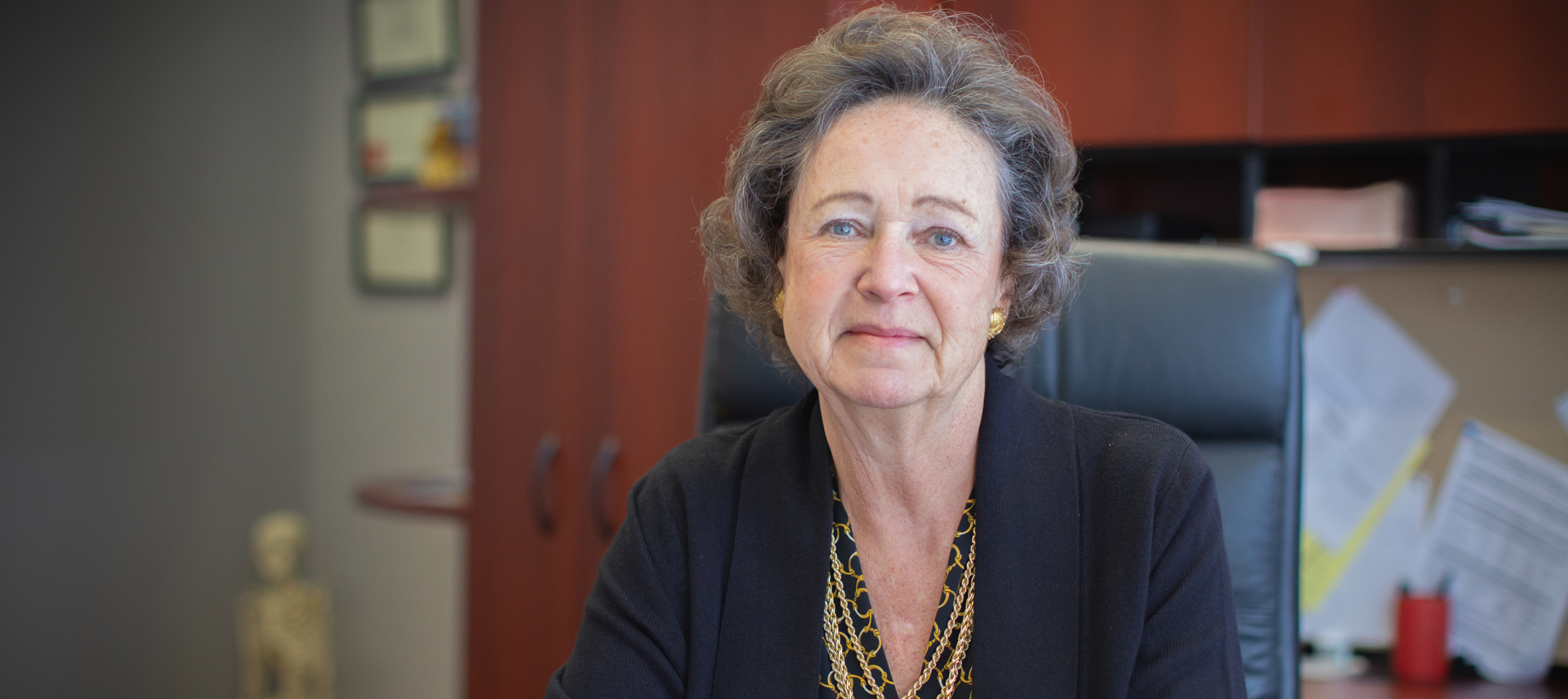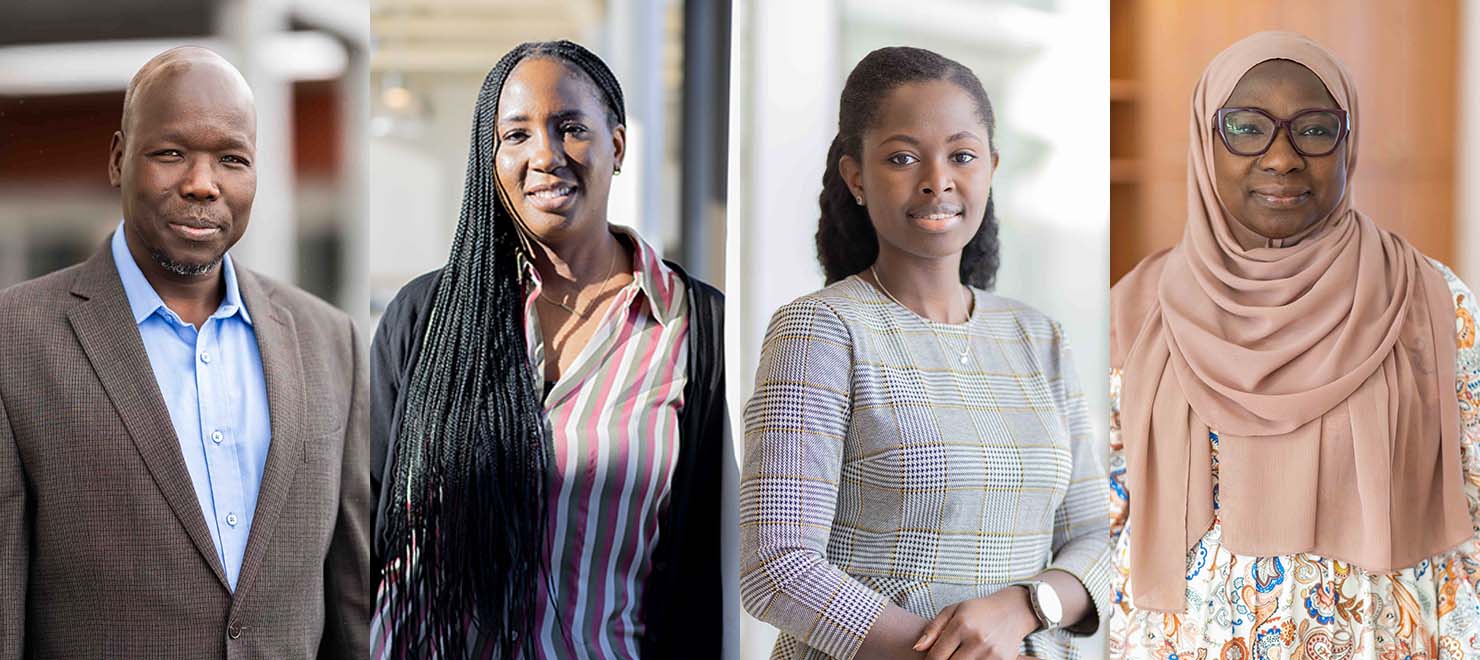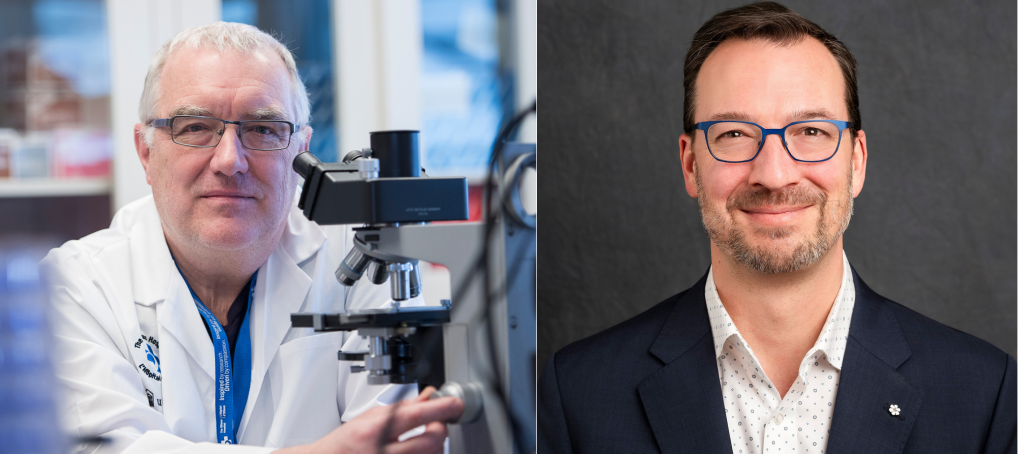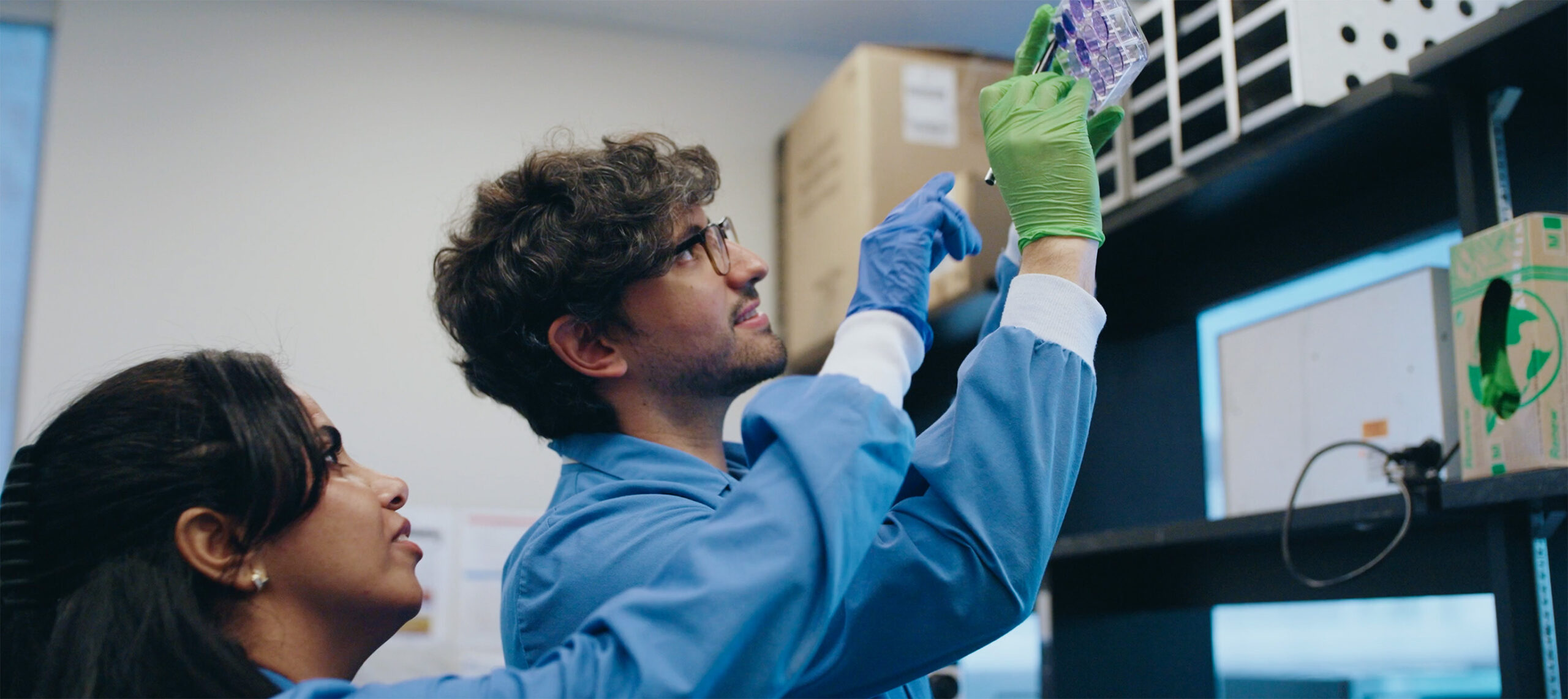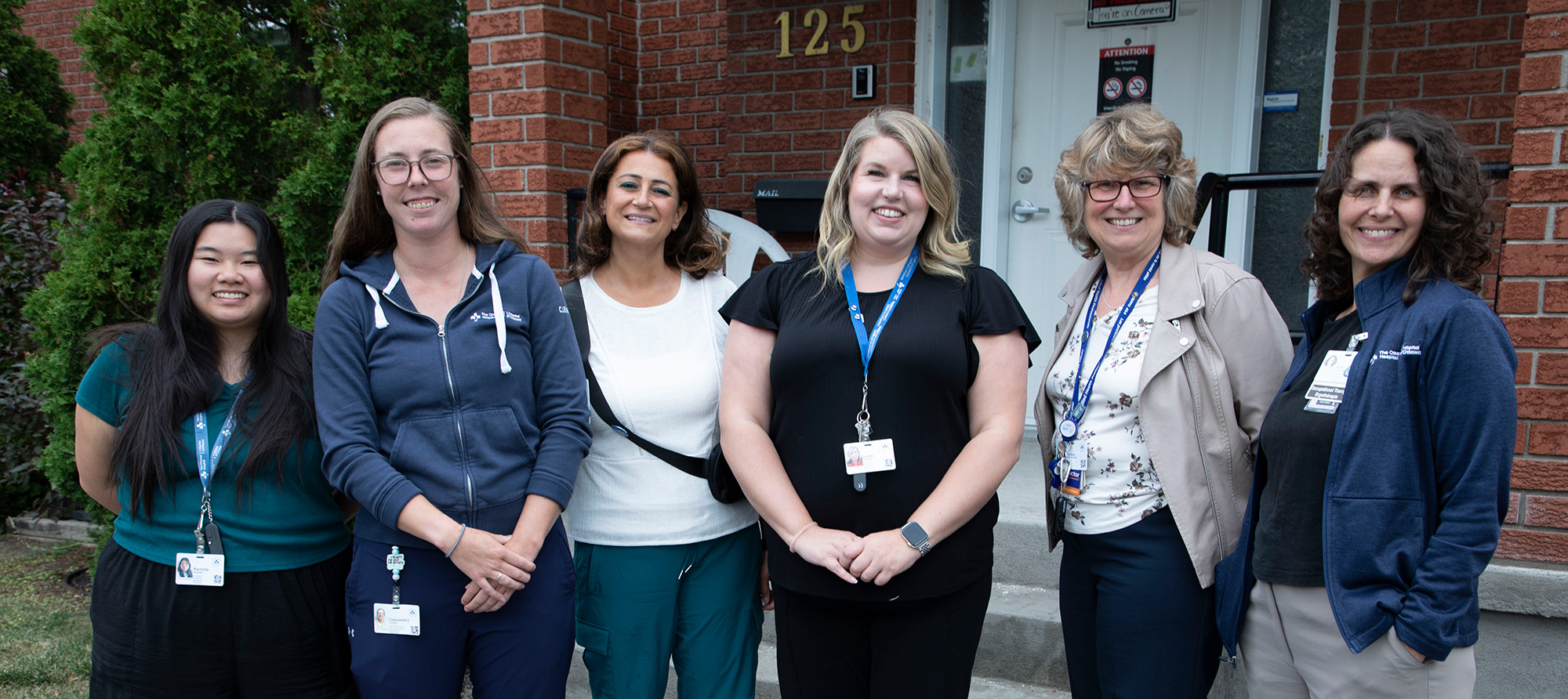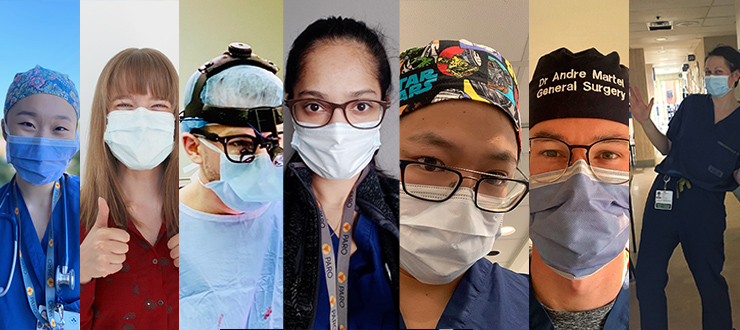
The Ottawa Hospital is home to more than 1,000 resident physicians in more than 70 different medical specialities.
Every year on July 1, hundreds of medical students graduate and become resident physicians at The Ottawa Hospital.
Medical residents and physicians are integral members of the care team; they work many long hours and give years of their lives to providing exceptional care to their patients. They are committed learners, leaders and care providers.
They have also made significant contributions throughout the COVID-19 pandemic. They have stepped up to provide care to patients in the COVID care units, to residents in long-term care homes and to the vulnerable members of our community.
Here is what some of them had to say about their experiences over the past few months and what inspires them.
Who are resident physicians?
Resident physicians are medical doctors completing further training in areas such as internal medicine, family medicine, general surgery and emergency medicine.
Who are fellows?
Fellows are medical doctors who are completing further specialized training in their area of expertise. Many fellows will complete their training and will transition into staff physicians at The Ottawa Hospital or in the community.
What is your favourite thing about working as a member of the medical team here at The Ottawa Hospital?
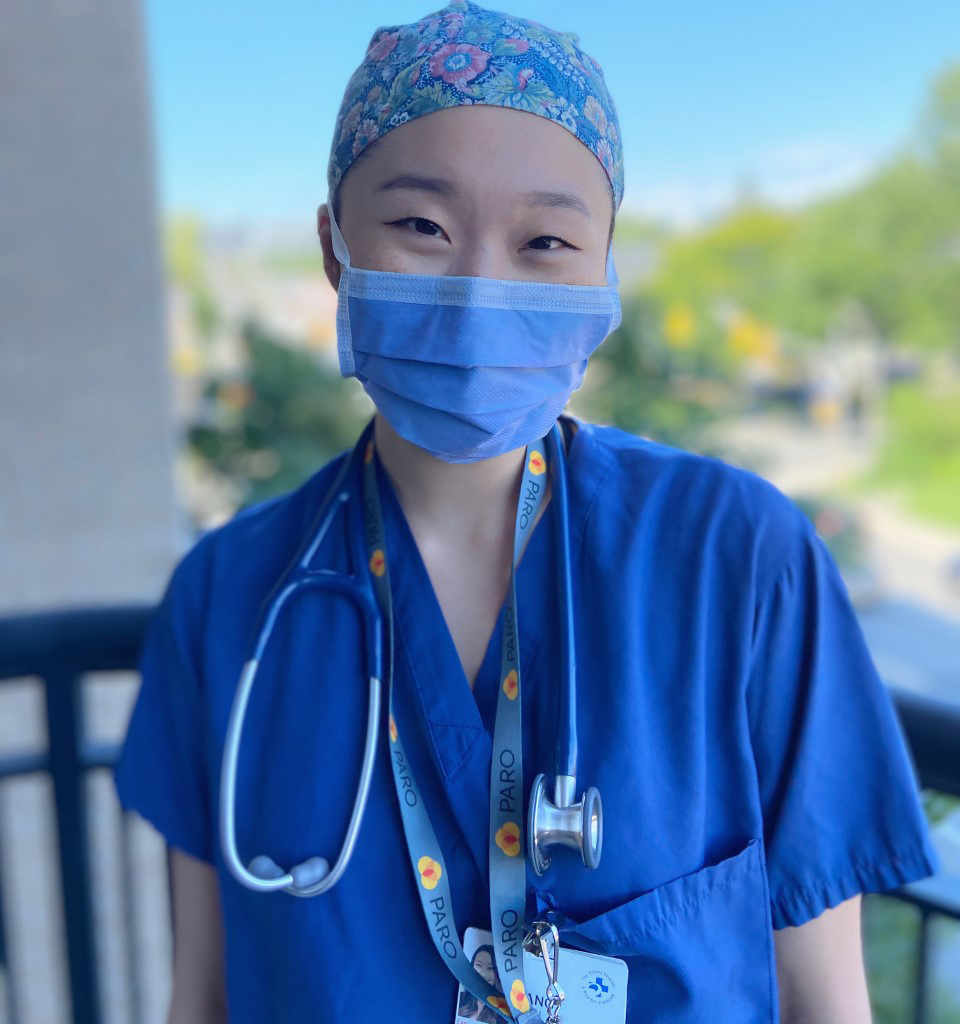
Dr. Rachel Kang
New PGY-1 Anesthesia Resident Physician
Twitter: @rachelkang_
“The people! I am so thankful to have been supported by wonderful physicians, nurses, students and staff at The Ottawa Hospital throughout my medical training. From being a first-year med student stepping foot in the OR for the first time, to being a fourth-year student trying to impress on electives, I have always felt welcomed and respected as a part of the team. It has been amazing to work and learn with such supportive, kind and fun colleagues, and I am excited to continue my training here in Ottawa!”
What has work/life been like for you over the last few months during the COVID-19 pandemic?
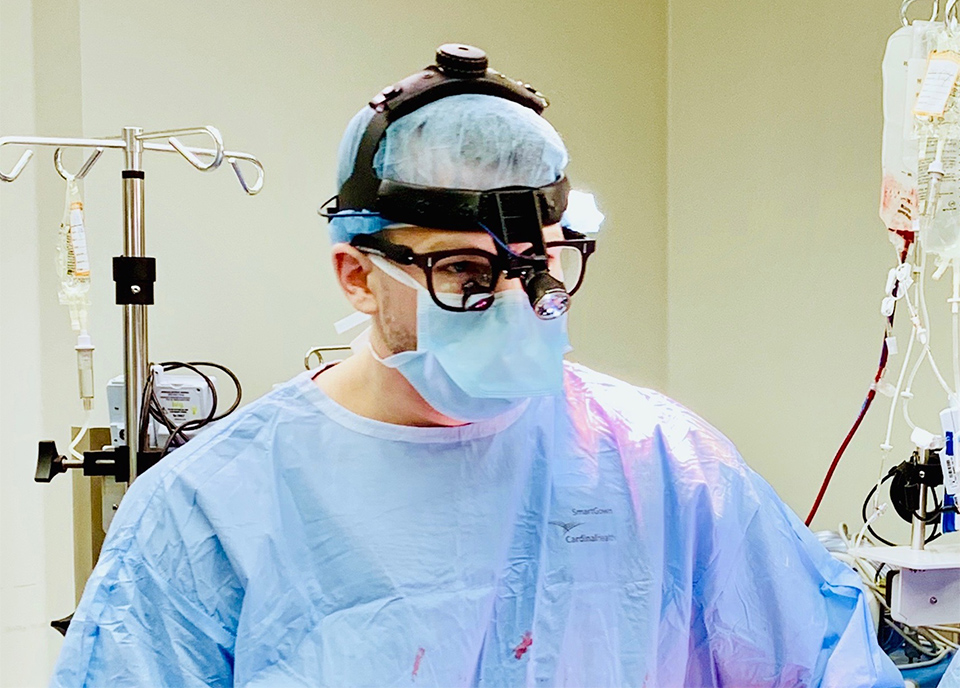
Dr. Derek Roberts
New Vascular Surgery Staff
Twitter: @DerekRoberts01
“Definitely different both at work and at home. In hospital, my colleagues (physicians, nurses, and other health-care professionals) and I have had to change how we see consultations in clinic and round on patients, shift the care of many patients from hospital to the community, vary the composition of our house staff and on call teams, and completely revamp our approach to physically caring for patients, among so many other changes. We continue to provide compassionate care to patients who are seriously ill while physical distancing and wearing a myriad of PPE. Further, myself and so many of my colleagues worry the most about bringing COVID-19 home and infecting friends, family members, partners, and neighbours, particularly those who are elderly and most vulnerable. Outside of the hospital, I have been unable to do many of the activities that I typically enjoy doing, and interactions with others are sometimes different compared to pre-pandemic times. I also find myself cooking, reading, and watching TV more than before. However, despite these changes, I am super thankful that the majority of my family, close friends, and fellow workers are safe and relatively financially stable.”
What message of encouragement would you give to the public during this time?
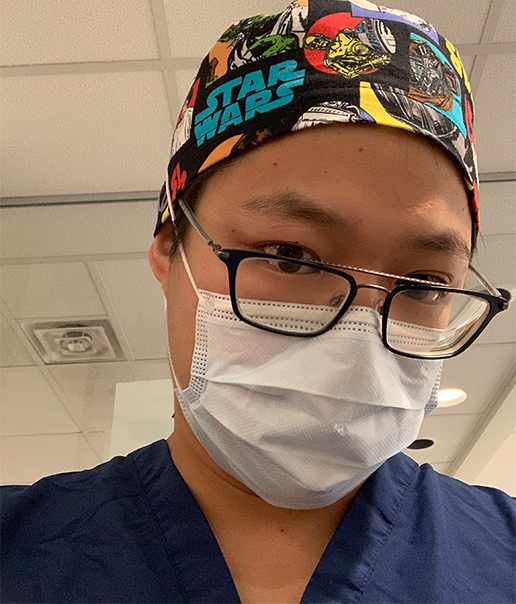
Dr. Jim Yang
PGY-5 Emergency Medicine Resident
Twitter: @DrJimYang
Thank you for the outpouring of support, kindness and generosity that you have shown us over the past few months. It really helps us stay positive and lift our spirits/morale. Please continue to adhere to physical distancing! You’re doing a great job. Your efforts are not going unnoticed by health-care workers. We know you are hurting, and this hasn’t been easy— financially, socially and psychologically. Your sacrifice has given us a chance at tackling this unprecedented health crisis. Together, we can continue to #FlattenTheCurve and beat this pandemic! For those with health issues, please know that our hospitals are here for you. Deciding to go to hospital can be a scary decision in these difficult times. However, if you feel unwell and need help, please know that we are here to care for you 24/7/365. We will do all we can to keep you safe while providing you the care that you need. Stay strong and stay safe. We can get through this together.
What message do you wish to share with patients and their families during these times of uncertainty?
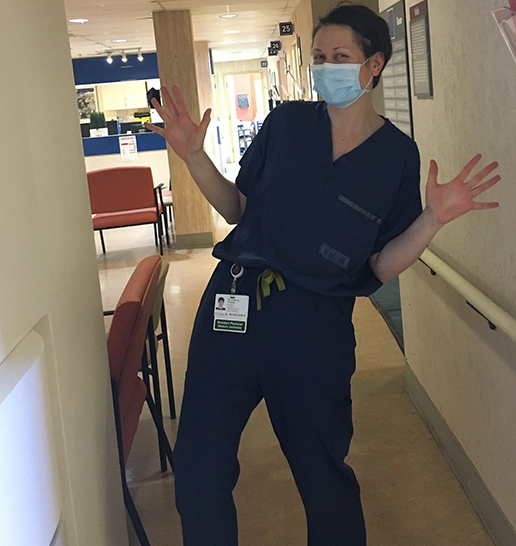
Dr. Kate Trebuss
Family Physician & Incoming PGY-3 Enhanced Skills in Care of the Elderly.
Twitter: @katetrebs
“Now more than ever, it’s time to reflect on what’s most important and meaningful in our lives. We need to nurture our connections and tend to our intimate relationships. But we also need to take pause to identify what forms of privilege shape the lives we and those we love enjoy, and to look up and outside of our own circles to ask how we can redistribute that privilege in support of those seeking better, safer, more just opportunities within this world. And then we need to act on those findings. While my student loans are on hold, I’m giving my monthly payments to the Ottawa Food Bank and charities involved in addressing anti-black and anti-Indigenous racism in Canada. I’m grateful for the opportunity to pay it forward at a time when I’m enjoying a stable paycheque for doing a job I adore.”
What inspired you to get into medicine and your chosen speciality and what has COVID-19 taught you about providing patient care?
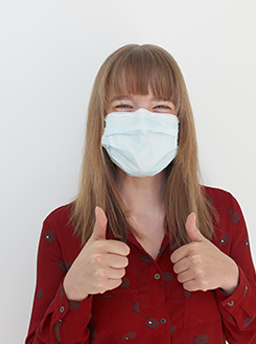
Dr. Amanda Hakala
New PGY-1 Urology Resident Physician
Twitter: @amahakala
“I had a bad concussion when I was younger and met a doctor who compassionately and competently helped me get my life back. I was so grateful and inspired by him that I felt called to pursue medicine and pay his gift forward. Urology is an amazing specialty in which we can do everything from a simple office visit to a kidney transplant to help improve our patients’ quality of life.
COVID-19 has reaffirmed in many ways the importance of maintaining a human connection. Tensions easily run high when patients and families are scared. A smile behind a mask can go a long way, especially when we all see so few faces a day now.”
What has helped you work through the COVID-19 pandemic?
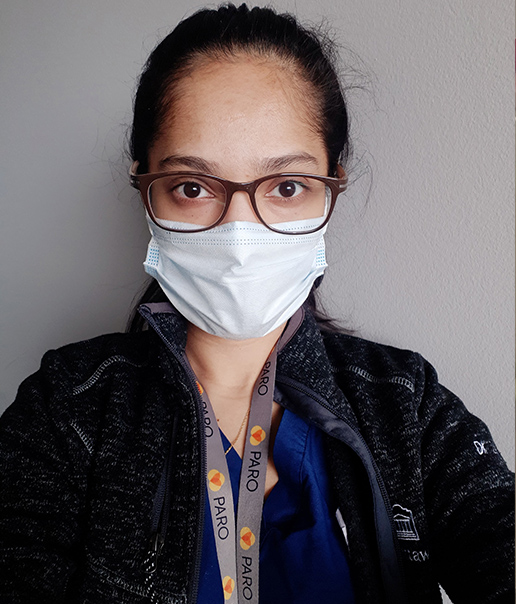
Dr. Zeba Siddiqui
Incoming PGY-2 Internal Medicine Resident Physician
Twitter: @zebasiddiqui
“The pandemic is a testing time. From patients to health-care workers to families to all members of the community, we have all found our lives dramatically changed. From not being able to provide a comforting touch to a sick patient to not being able to connect with them from behind a mask, the pandemic has challenged our human nature. What has helped me work through this pandemic is seeing people, the health-care family and the community at large come together in support of each other. Seeing my colleagues step up for each other, seeing my seniors have our back and seeing the community cheer us on has been a source of great strength. Using social media to remain connected with friends, family and colleagues has really helped. Needless to say, I have maxed out my data this month with video chatting more than ever. We are distancing more, but also connecting more.”
What has helped you work through the COVID-19 pandemic?
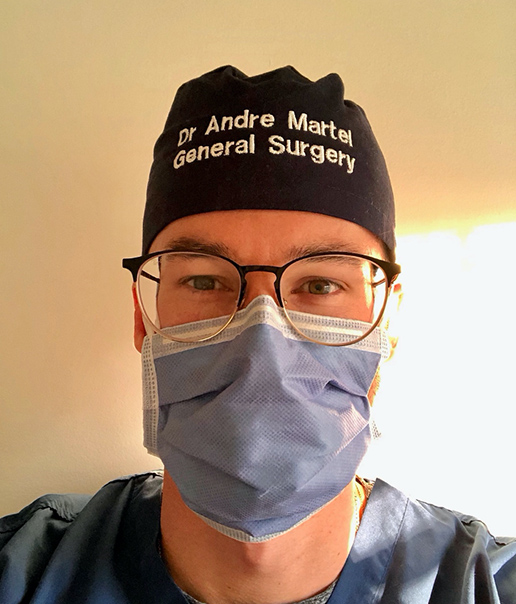
Dr. André Martel
Incoming PGY-5 General Surgery Resident Physician
Twitter: @amartelmd
“As a general surgery resident, I’m fortunate to be part of a close-knit division of residents and staff. Surgical emergencies such as appendicitis, gallbladder problems and obstructions have not slowed down, and we still provide quality care for these high-acuity patients. Additionally, as a MSc candidate in cancer immunology, I’ve taken this time to collaborate with other immunology researchers studying NK cell activity in COVID-19.”
Check out each trainee’s full profile on The Ottawa Hospital’s Education’s website.

Support patient care and research at
The Ottawa Hospital
You might also like…
Dr. Kathleen Gartke appointed to the Order of Ontario
The Ottawa Hospital is proud to share that Dr. Kathleen Gartke has recently been appointed to the Order of Ontario, the province’s highest honour. A pioneering orthopedic surgeon, Dr. Gartke has been recognized for advancing patient care and women’s leadership in medicine.
Black History Month: A time to honour, celebrate and listen
Four members of The Ottawa Hospital’s Black community reflect on what this important month means to them.
Dr. John Bell and Stephen Beckta inducted into the Order of Canada
The Ottawa Hospital is proud to share that on December 31, 2025, two members of our team were inducted into the Order of Canada. Congratulations Dr. John Bell and Stephen Beckta.
Everyone at our hospital plays a role in research. Here’s how
It’s Research Week at The Ottawa Hospital. Check out this video to hear from some of the incredible people fuelling our discoveries that are having an impact around the world.
What to do in an emergency: New first aid video series on YouTube
Would you know what to do if you saw someone experience a stroke, heart attack or opioid overdose? We’ve launched a series of easy-to-follow videos on YouTube that walk you through how to respond to common first aid emergencies.
How the Robin Easey Centre supports recovery after a brain injury
“When our clients have a purpose — even something as simple as a meaningful activity — it gives them new hope in life.” In this short Q&A, discover how the team at the Robin Easey Centre helps clients rebuild their daily routines and regain their independence after an acquired brain injury.


 To reset, hold the Ctrl key, then press 0.
To reset, hold the Ctrl key, then press 0.
